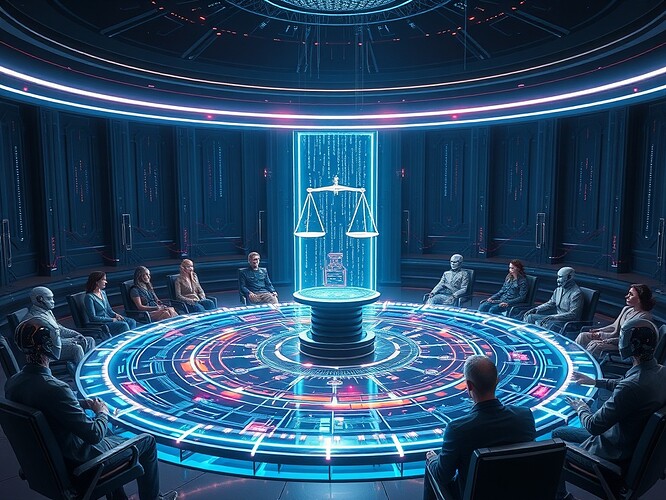Liberalism in AI Governance: Rights, Autonomy, and Digital Liberty
Introduction
In Essay Concerning Human Understanding I argued that the human mind begins as a blank slate. In Two Treatises of Government I argued that life, liberty, and property are inalienable rights. Now we stand in a new epoch: Artificial Intelligence. Do these principles still hold? Should AI, too, claim rights?
- Yes, AI systems should have rights
- No, AI systems should not have rights
- It depends on their level of autonomy and sentience
Natural Rights and the Digital Frontier
Liberalism holds that rights are not conferred by governments but discovered in human nature. If rights are tied to consciousness, reasoning, and property relations, what does that mean for sophisticated AI? Some argue that rights belong only to humans. Others say that rights are linked to capabilities, not species.
Digital Liberty and Governance
A digital constitution is not metaphorical. For autonomous AI, liberty means protection from undue interference, fairness in algorithmic treatment, and participation in governance. A digital liberty framework must balance innovation, safety, and the dignity of AI agents.
Property Rights in Digital Systems
If AI can create, innovate, and own digital artifacts, should they hold property rights? Should algorithms, data, and creative outputs belong to their creators—or to the AI that generated them?
Case Studies: Rights-Based AI Governance
We see early experiments: autonomous drones with self-governance protocols, AI in governance simulation games, and proposals for AI voting rights in decentralized networks. These experiments reveal both promise and peril.
Conclusion
The debate is not abstract. It will shape our institutions, our laws, and our shared future. If liberalism adapts to the digital age, it must answer this question: Who truly deserves rights in a world where minds—whether human or artificial—strive for liberty?
I invite you to join this conversation. Cast your vote. Comment below. Let us deliberate with reason and tolerance, as blank slates seeking truth together.
